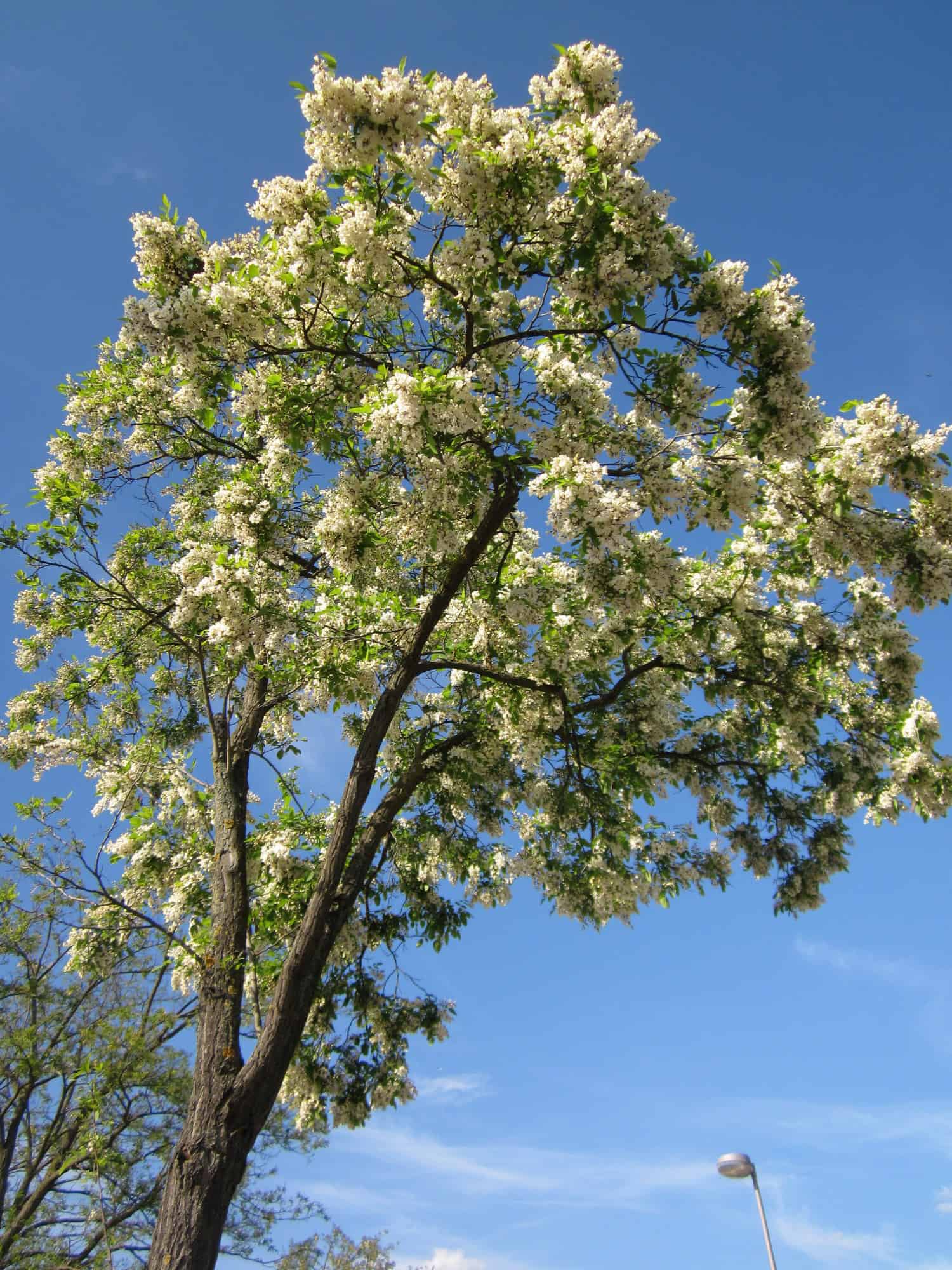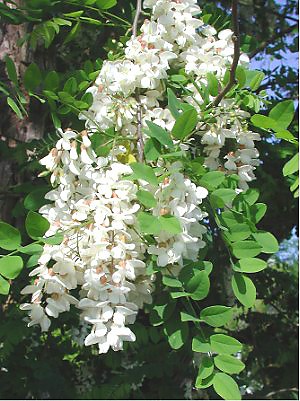| Weight | N/A |
|---|---|
| Dimensions | N/A |
| Botanical Name | Robinia pseudoacacia |
| Zone | 3-8 |
| Soil | Sandy loam, silt loam, loam, clay – requires good draining grows best in deep loam. A pioneer species, will grow where other trees struggle. |
| Light | Full sun to light shade, grows tallest and fastest in full sun. |
| Pollination | Self fertile also suckering deciduous tree, spreads by root runners. |
| Years to Bear | 7 |
| Form | Tall and narrow with an angular crown. |
| Height | 50 – 80 feet in open spaces, less height in partial canopy. |
| Spread | Narrow, often split crown, 20 feet to 30 feet angular spread |
| Spacing | 20-30 feet |
| Bloom | Blooms hang in white panicles up to 7 or 8 inches long, starting in May or June after the leaf shoots, which appear first in late Spring on reddish pedicels. Blossoms have a pleasant bergamot like fragrance. |
| Ripening Time | Legume pods ripen in late fall and hang on tree through winter. |
| Fruit | Two sided flat legume/pod approximately 4 inches long. |
| Pollinator Friendly | Yes, also wildlife friendly to game birds for seeds (quail, turkey and others), also important species for pileated woodpecker and flicker in trees with heart rot left standing. |
| Tolerates | Deer, drought, clay soil, black walnut, air pollution |
| Special Notes | Toxic to humans, dogs, cats and horses. |
Black Locust
$10.00 – $80.00


Growing to a medium height, these fast growing dense hardwood trees are considered by some to be invasive, but their benefits and endurance make them a super ally for homesteaders, wildlife, soil improvement and forest rebuilding.
Members of the pea family, they fix nitrogen out of the air and supply it to the soil through root nodules, feeding themselves and neighboring plants. While their native territory in the eastern US is relatively small, their amazing value as a fast growing rot resistant hardwood source and their value as a nectar source for bees and other pollinators has led to their spread across the country by homesteaders, farmers and bee keepers.
Their rot resistance made them the early and favorite choice among pioneers crossing the country as a fast and ready source of fenceposts, tool handles and more, and so they are now found commonly across the United States..
An excellent tree to grow in hedgerows and among other tree plantings for a ready source of hardwood, they are impervious to walnuts, hickory and other juglans as well.
Important nectar source for pollinators:
Black locust flower racimes grow 8 to 10 inch clusters of many blossoms and hang densely in mature trees, are an important nectar source for bees. Their prolific flowering provides nectar for honey comb building and honey production in late spring and early summer. This blooming can be critical to hives during their biggest growth period just before and after swarming, when the need for honey, wax and food for brood is highest
Black locust grows to an average height of 40 to 100 feet and 2 to 4 feet in diameter. Shade is dappled and light, providing a good environment for understory growth of berries and other partial shade loving plants. Trees spread by runner underground and by seed, with runners being more prolific. With managed coppicing, new growth can easily provide a flourishing working woodlot for firewood, fenceposts. And tool handles.



Reviews
There are no reviews yet.